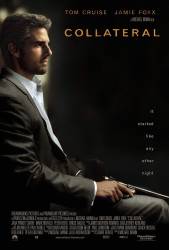
Question: I noticed from the previews that this movie looks very different. What is it? Is it a digital camera that has been used? Or no lighting effects used? The movie really has a "behind the scene" feel.
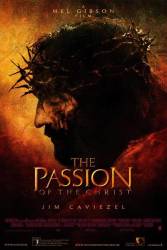
Question: I have heard a rumor that Gibson plans to produce both a prequel and a sequel to The Passion. Does anyone know if this is true or have any information?
Answer: There is going to be another movie; The Resurrection, which could shoot as early as the summer of 2018, the release date will be some time in 2019-2020. I previously watched this movie and felt it left on a cliff hanger, (tho I already know what happens in the end) I figured there has to be another one coming.
Answer: No idea about a sequel, though the only "prequel" idea I know about is the story of the Maccabees (the story of Haunakah (sorry for the spelling)).
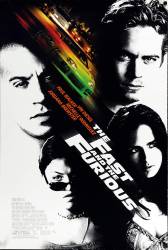
Question: Jessie is using a car design program from the Supra. Does anyone know either what the program is or where to get it?
Chosen answer: It's not a real program, just some CGI. As well as when the pictures of "what it could look like" show up. Those are existing pictures of the car.
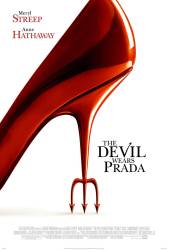
Question: Can anyone please explain to me the deal about Nigel not getting a job in Paris? He thought he got promoted then Miranda picked someone else or something and he says something like 'when the time is right, she'll pay me back'. I've seen this film loads of times but I've never fully understood what happened. Thanks.
Chosen answer: Miranda was going to be replaced by Jaqueline and forced to retire. Miranda worked a deal to give Nigel's new job to Jaqueline instead. Since Jaqueline now has a job she wants, there is no one eager or qualified to replace Miranda. Miranda keeps her job. Nigel doesn't get a new job and must remain with Miranda. Miranda gets what she wants, Jaqueline gets what she wants, Nigel gets screwed, but maintains the (most likely futile) hope that Miranda will pay him back by some other means in due course.
Answer: Nigel was going to be James Holt's partner But Miranda made it so Jacqueline got or instead so Miranda could remain Editor in Chief at Runway.
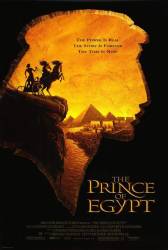
Question: During the song "When you Believe" a little girl says a bunch of stuff in Hebrew. What is she saying, and what is the translation for it?
Answer: "Ashira ladonai ki gaoh gaah, Ashira ladonai ki gaoh gaah, Michamocha baelim adonai, Mikamocha nedarba kodesh, Nachitah v'chas d'cha am zu gaalta, Nachitah v'chas d'cha am zu gaalta, Ashira, ashira, ashira..." "I will sing to the lord, for He has triumphed gloriously, I will sing to the Lord, for he has triumphed gloriously, Who is like you, O Lord, among the Celestial? Who is like you, majestic in Holiness? In your love You lead the people You redeemed, I will sing, I will sing, I will sing..."
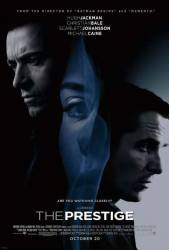
Question: In Angier's final performance Borden watches Angier's duplicate drown in the tank. Does the other Angier still reappear for the audience, and take a bow? They never explain this in the film. If he does take the bow, Borden would never have been accused of murder. If he doesn't take the bow, how does the duplicate know not to do so? The duplicate would have no idea that Borden was below stage.
Answer: Angier always wants to take revenge on Borden as he is the reason behind the death of his wife. He knows that Borden is in the crowd the two times, first time, Olivia suggests Borden to watch the new "Transported Man" trick of Angier, where Borden finds out the trap door in the bottom of the machine, second time, Borden wants to know how Angier flies that distance with in seconds through the trap door. As expected by the Angier in the final play, Borden reaches the back stage where actual Angier is drowning (it is as always actual Angier drowns and the replica of Angier appears at some distance in every performance). So, as per the plan the replica hides to create an impression that Borden intentionally murders Angier. Note: the replica of Angier has the same ability and sense like actual Angier.
It's never stated whether the "real" Angier drowns or takes the bow, but it's implied that it doesn't matter - as the clone is a perfect copy, they are both "Angier." Angier at one point says, referring to toll the trick has taken on him, that each time he did it, even he himself didn't know whether he would be the man in the box or the prestige. Similarly, when Angier asked Tesla which hat of all the duplicates was his, Tesla replied "They are all your hat."
Answer: No, he does not appear to take a bow. The set-up is as follows: Angier invites the audience on stage to observe the machine, but in reality it is so he can watch for Borden trying to work out the trick. When he sees Borden in the audience, he also knows Borden will not learn anything from the stage, and will go backstage. He then clones himself, and the clone is created with the exact knowledge he had at the time of the cloning, including Borden's presence and the trap the original Angier had set. So the "new" Angier hides away the best he can, letting Borden be framed for the murder of the "original" Angier. Had he appeared, not only would it ruin his plan of framing Borden, but it would also reveal how he had done his trick, and he would not allow any of those to happen, no matter what.
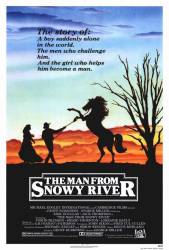
Question: How did they make Kirk Douglas have a peg leg? How was he able to walk that way?
Answer: This movie predates the more advanced CGI that would be used these days. In older films, actors portraying an amputee would have their leg (or arm) bent back and strapped to their body. A prosthetic peg leg would be attacked to the lower appendage. The actors were also filmed from strategic vantage points so the bent part of the limb didn't show. When Douglas is seen driving a wagon, the seat was probably constructed so that his lower leg fit into a hidden compartment and the peg leg was attached on top to be visible. Douglas also wore rather baggy pants, and that would help conceal his bent leg.
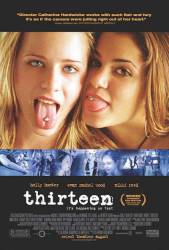
Question: I read that Evan Rachel Wood's character, Tracy, is supposed to be Nikki Reed at the age when she was having the experiences that Tracy went through. Was the character Evie based on a girl that Nikki knew in real life?
Answer: Evie was based off several people in Nikki Reed's life.
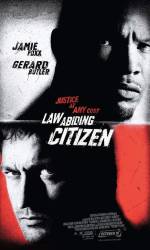
Question: I never really understood what the motive was when Clyde murdered his cellmate. Why did he do it? What did this act have to do with the plot of this movie?
Answer: To make sure he was placed in solitary confinement. The warehouse that he owned and operated out of that was next to the prison also had a tunnel connected to every cell in the solitary wing. Clyde needed to be in one of the solitary cells so he could leave the prison whenever he needed to unnoticed, which also served to make it look like he had an accomplice on the outside.
When Nick is talking to a spook later in the movie, he is quoted as telling Nick: "That cell-mate that he killed, you think that was random? No. That's a pawn being moved off the board. Anyone who had anything to do with that case, he's gonna be coming after you." Just as all deaths played roles in Clydes game, as the audience we are led to believe this inmate played a role, but were never given any resolution as to what significance it was. Not a big deal in grand scheme of things, but unexplained.
I don't know if you just didn't read the answer thoroughly or if you didn't pay close attention to the movie, but Clyde killing his cellmate was far from being unexplained. He can't leave the prison if he's in a regular cell with the general population, so he kills the cellmate in order to get placed in the solitary wing, because every solitary cell is connected to the tunnel in his warehouse that is next to the prison, which allows him to leave whenever he needs to.
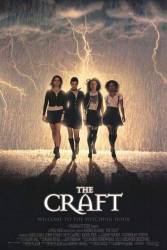
Question: What is the whole conversation in the first French class between Chris' friend, the teacher and Sarah?
Answer: Translation on the board: "if you would have done your homework, you would understand" Teacher: "I hope you had a good weekend" " (Calls to the students name) Your weekend went good?" Student: "Very good" Teacher: "What did you do during the weekend? Did you go to the beach, or did you find a elegant woman?" "Search for a woman?" Student: "oh did you mean did I get laid" (now you see why he says that) Teacher: "In french, in french! (says students name) " Student: "a lot of... a lot of lay" Girl (sorry I forgot her name): "What a idiot, moron" Teacher: "Well, our new student m'am your french is very good!" (Conversation goes on in English) Teacher: (says what the board says) "if you would have done your homework, you would understand" By the way what they're learning in this French class is L'imparfait tense.

Question: What is the purpose or the story behind the little stuffed dog that appears in so many scenes? It's on the table when the guys are playing poker, it appears in the bowling scene too.
Answer: Presumably it's a favorite mascot of the group. There's likely no backstory per se, it's just something the filmmakers did to add to sense that these people have been together for a very long time.

Question: Can anyone who speaks Japanese tell me what Jim says to the guard who's beating up the doctor? He says a few lines, then bows. The guard seems embarrassed and walks away.
Chosen answer: The first time, Jim says "Nanika no machigai desu. Bokutachi wa minna tomodachi desu yone. Senso no sei desu." This roughly translates to "There has been some sort of mistake. We are all friends aren't we? It is the war's fault." The second time, Jim only says "Nanika no machigai desu. Bokutachi wa minna..." and then gets pushed aside. "There has been a mistake, we are all...". I hope that helps.
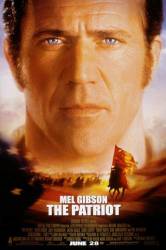
Question: At the end of the movie, Martin stabs Tavington in the stomach, and then in the throat. How does he know Tavington is really dead this time? Earlier in the film, Tavington pretended to be dead twice after Martin's sons shot him.
Answer: Guns were less powerful during Revolutionary times and the wounds were more survivable. Deep and ripping knife stabs to areas like the abdomen and the neck area are more likely to be fatal. Tavington may not die instantly, but he would probably bleed out and/or bleed internally fairly quickly.
Would being stabbed in the stomach, and in the throat have been enough to kill a person as tough as Tavington?
Absolutely. A deep stab to the stomach/intestinal area would be very deadly even today. Being stabbed directly in the throat would kill someone very fast due to a lack of air and inhaling blood into the lungs.
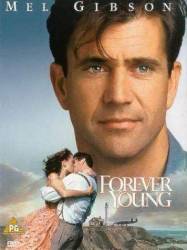
Question: Would the labels on the Budweiser bottles be the same in the older era during the beginning of the movie, as it is in the latter part of the movie (1994)?
Answer: The color and design of the label hasn't changed in decades, although the script on it has changed some over time. They all look almost identical from a distance.
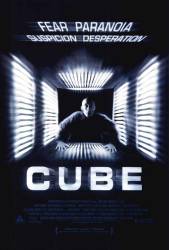
Question: How did Quentin find others in the last scene? he was left unconscious and he had no way to figure out where others went after that (considering his lack of knowledge in mathematics) so how could he possibly make his way to the bridge room?
Answer: It's established that sound travels throughout the structure reasonably well. Also, they didn't travel relatively far, even with the rooms shifting.
Actually, considering the distance that they travelled and the injuries he sustained, Quentin would have had extreme difficulty catching up. It looks like the 3 travelled upwards at least 12 cubes, meaning Quentin would have had to climb up each one with the chance that any of the rooms could be trapped fast enough to catch up to them with enough strength left over to kill Leaven.
Adrenaline is an extremely driving force, so I'd still consider it entirely possible it happened that way.

Question: Is there some reason that we are considently seeing planes fly over her house? Is that supposed to symbolize something?
Answer: Jess' house is supposed to be on the main flight path of Heathrow airport. Her mum and dad work there.
Answer: I doubt it; it's probably because the film is set in the Borough of Hounslow, which is in the flight paths of many London airports, including Heathrow.
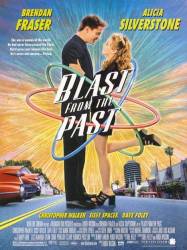
Question: Can anyone translate what Adam and his dad are saying when Adam is a teenager and they are in the classroom?
Answer: Adam: Tempus fugit (Latin) = Time flies. Dad: Que les bons temps roulent! (French) = How good times roll! Adam: Geradeaus, dann links (German) = Straightforward, then left. Dad: Sorgen Sie bitte dafür, dass die [das] Gepäck sorgfältig behandelt werden [wird] (German) = Please make sure that this luggage will be treated carefully. Adam: Haben Sie etwas Nettes in Leder? (German) = Do you have something nice in leather?

Question: In the scene where Solara hijacks the car, why does the man who had Eli's sword in him stop her from starting the car, take out the blade, and get out from the car and kneel on the ground? Was he trying to say something to Solara or the leader?
Answer: Most likely, Redridge is giving Solara a chance to escape Carnegie's regime. At this point, he knows he's dying, but perhaps still wants the best for her. Remember, he had a crush on her the whole movie (blocking her while she was getting Eli's canteen filled, bargaining with Carnegie for her before chasing after them, even asking Eli nicely to give up the book after the gunfight in the house). I think it may also have been used as a self-redemption moment for one of the bad guys.
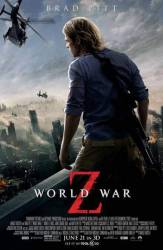
Question: On the plane, as Gerry is wrapping her stump and right after he admits he hadn't known cutting her hand off would work, Segen says something quietly, then adds "Now I'm just a liability." What does she say right before "Now I'm just a liability"? I can't hear what she says (it might not be English) and it's not in the closed captioning or in any transcript I've been able to find online.
Answer: Segen says in Hebrew, "עכשיו אני סתם עול" (phonetically pronounced, "achshav ani stam ohl"), which means "Now I'm just a burden." Then Segen says in English, "Now I'm just a liability."
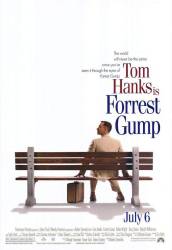
Chosen answer: It was shot with a digital camera. IMDB is a great place to answer questions like this. Go to *Technical Specifications* in the *Other Info* section of the menu on the left hand side of the screen. In an interview in American Cinematographer, Michael Mann said that as far as he was aware, this was one of the first movies to attempt to make a "look" out of digital video rather than trying to make Digital Video look like film. This approach meant the movie could be shot in the low-light scenes of urban desolation Mann wanted - because Digital reacts much better to low light than film. The approximately 20% of the picture that was shot on film was mostly, according to Mann, the portion set in the "Fever" nightclub - because this is the scene with the brightest lighting states, a condition in which Digital Video does not perform as well.
J I Cohen